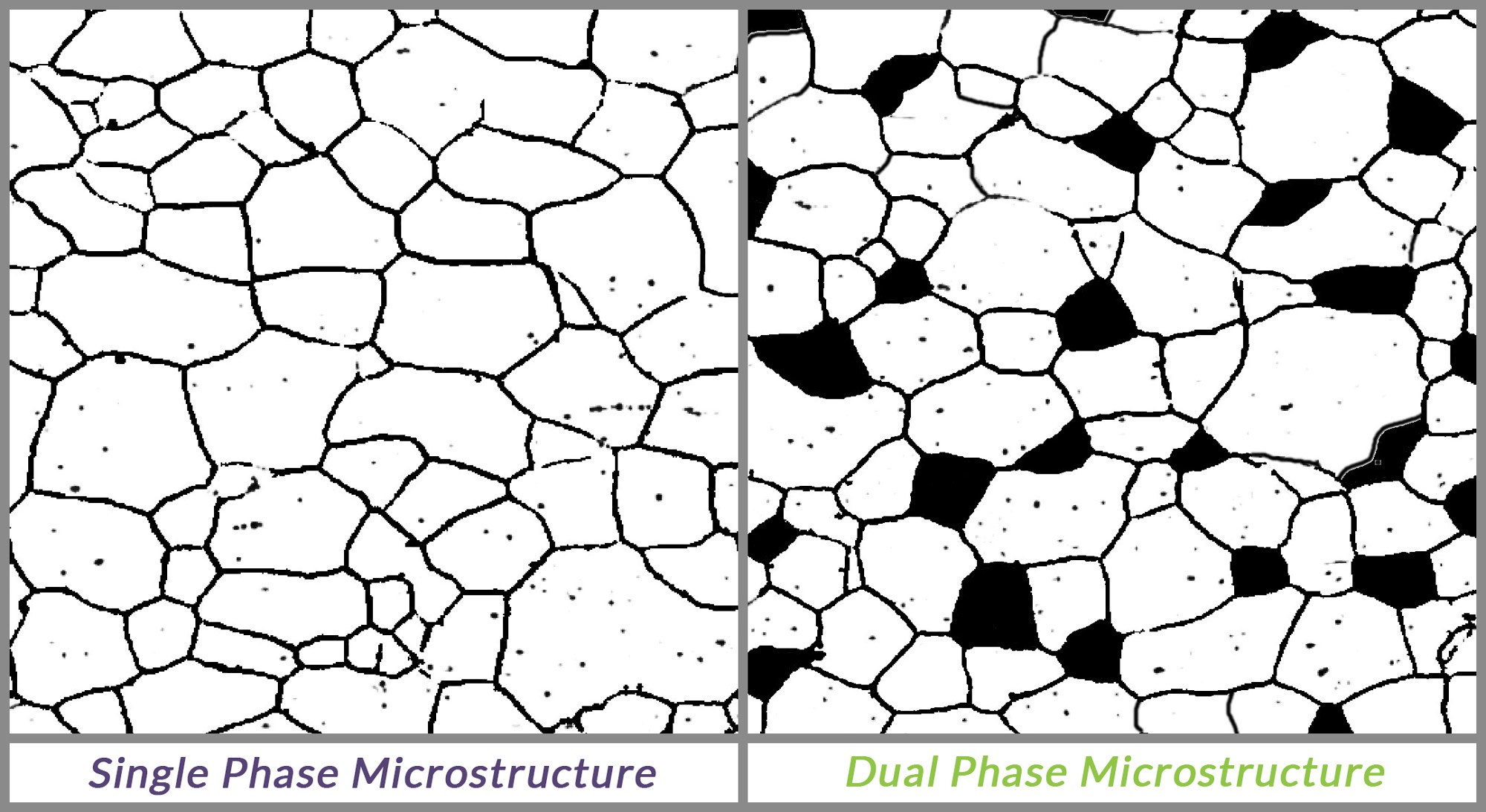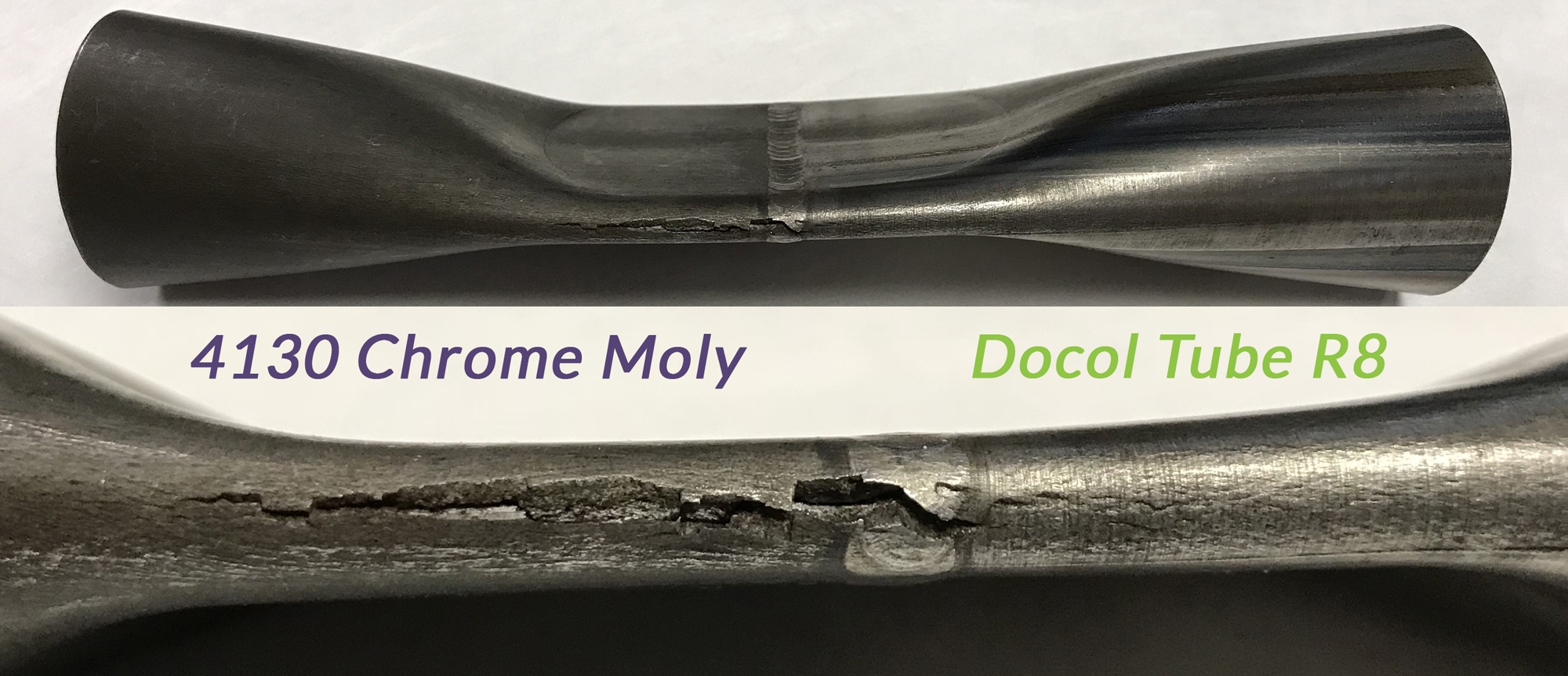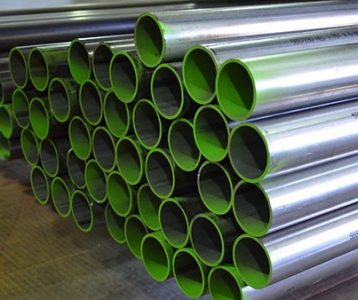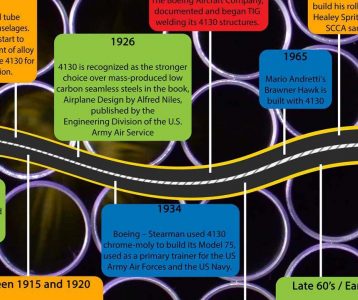High Strength Steel, a type of steel that has a yield strength that ranges between 30-80 ksi (210-550 MPa) and a tensile strength between 40-100 ksi (270 to 700 MPa). Steels with yield levels higher than 80 ksi (550 MPa) are considered Advanced High Strength Steels, and when the tensile levels exceed 113 ksi (780 MPa), they are referred to as Ultra High Strength Steels.
The principal difference between conventional High Strength Steel (HSS) (such as 4130 Chrome Moly) and Advanced High Strength Steel (AHSS) (such as Docol® Tube R8) is their microstructure. Conventional HSS are single-phase ferritic steels with a potential for some pearlite in C-Mn steels. AHSS are primarily steels with a microstructure containing a phase other than ferrite, pearlite, or cementite – for example, martensite, bainite, austenite, and/or retained austenite in quantities sufficient to produce unique mechanical properties. Some types of AHSS have a higher strain hardening capacity resulting in a strength-ductility balance superior to conventional steels. Other types have ultra-high yield and tensile strengths and show a bake-hardening behavior.
Advanced High-Strength Steels are complex, sophisticated materials, with carefully selected chemical compositions and multiphase microstructures resulting from precisely controlled heating and cooling processes. Various strengthening mechanisms are employed to achieve a range of strength, ductility, toughness, and fatigue properties. These steels are not the mild steels of yesterday; instead, they are uniquely engineered to meet the challenges o
The AHSS family includes Dual Phase (DP), Complex-Phase (CP), Ferritic-Bainitic (FB), Martensitic (MS or MART), Transformation-Induced Plasticity (TRIP), Hot-Formed (HF), and Twinning-Induced Plasticity (TWIP). These 1st and 2nd Generation AHSS grades are uniquely qualified to meet the functional performance demands of individual parts. For example, DP and TRIP steels are excellent in the crash zones of the car for their high energy absorption.

DP steels, like Docol® Tube R8, offer an incredibly advantageous combination of low yield, high-tensile strength, easy cold working, and weldability due to their ferrite-martensite imbued lattice microstructure. The Ferrite phase of DP steels gives it its excellent formability while the hard Martinsite islands give it is very high initial work hardening rate.



